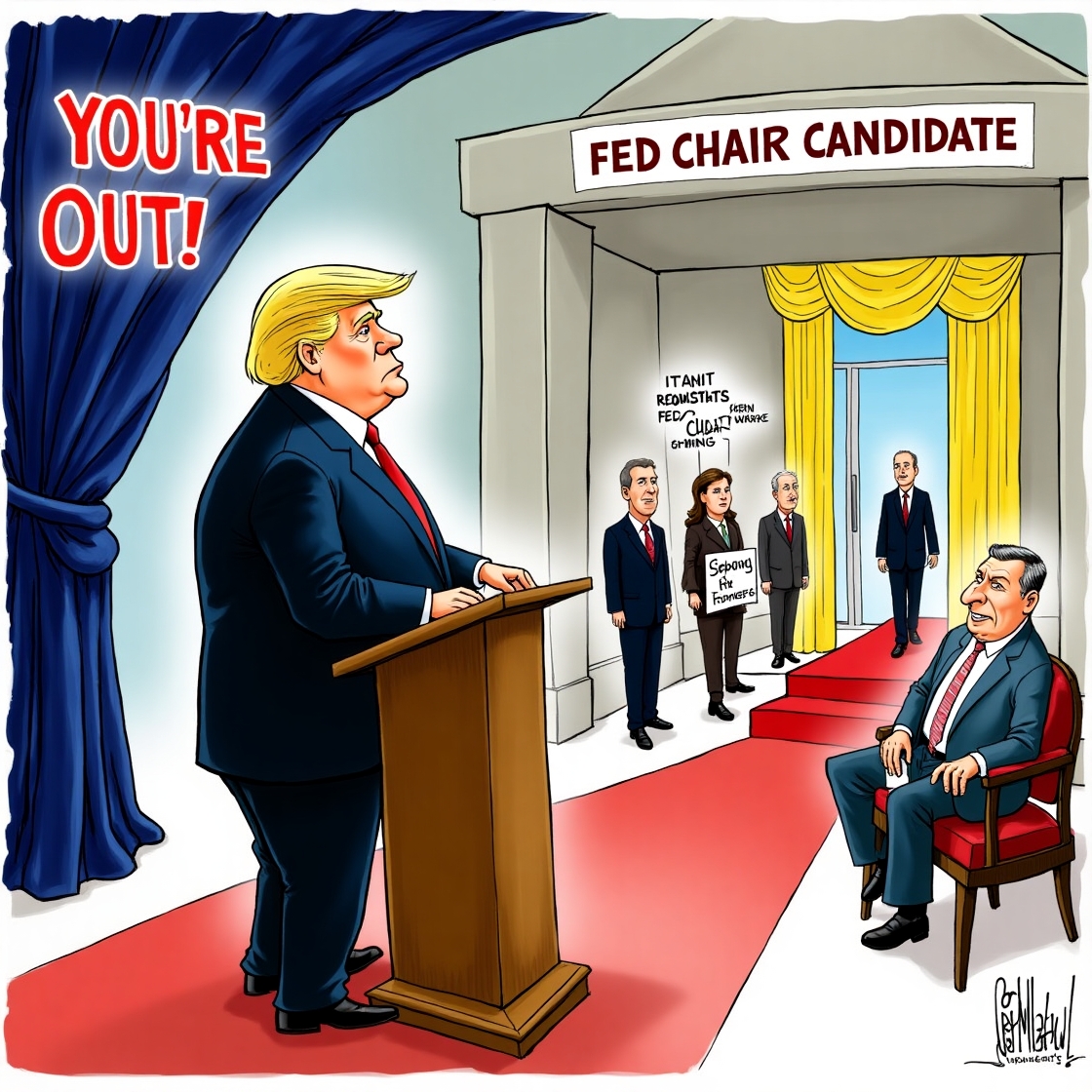In a matter of hours, a seemingly likely candidate for the next Federal Reserve Chair went from making bold declarations on live television to being publicly dismissed by the very man whose decision could have made it happen. The man in question is Scott Bessent — prominent hedge fund manager and former Soros Fund CIO — who on Tuesday morning confidently told Bloomberg TV that he would “gladly do it” if asked to lead the U.S. central bank. But by the afternoon, former President Donald Trump had crushed the idea entirely.
Speaking to reporters, Trump dismissed the notion that Bessent was his top pick, despite earlier reports indicating he was under consideration. “He’s doing a great job where he is,” Trump said, referring to Bessent’s current advisory role. The implication was clear: Scott Bessent is not taking over the Fed — at least not any time soon.
A Fast-Moving Political Theater
The speed and public nature of the reversal are striking, even by Trumpian standards. Just moments before Trump’s comments, Bessent had confirmed that a “formal process” was already underway to identify a successor for current Fed Chair Jerome Powell, whose term ends in May 2026. Bessent not only acknowledged the process but also stated he was part of it, remarking, “It’s President Trump’s decision, and it will go at his pace.” That pace, apparently, was warp-speed rejection.
Trump’s about-face wasn’t just about rejecting Bessent. It was also a direct signal to Powell, whom Trump has repeatedly criticized for maintaining interest rates at levels he views as harmful to the economy. Ironically, the same morning Bessent offered his critique of Powell — suggesting that he should leave the Fed entirely once his chairmanship ends — Trump seemed to shift gears again, pulling Powell back into the spotlight, possibly as a temporary fallback.
A Shadow Presidency at the Fed?
Bessent’s criticism of Powell was pointed and strategic. He warned against the optics and confusion of having a “shadow Fed Chair” — a former leader who lingers within the institution and influences its direction from the sidelines. Powell’s term as a governor doesn’t end until January 2028, giving him nearly two years of continued authority even after his chairmanship expires. Bessent made it clear that, in his view, this would sow confusion in the markets.
However, Trump’s abrupt decision to walk back Bessent’s potential nomination seemed less about Bessent’s qualifications and more about media optics, political showmanship, and possibly — control. The idea of a “shadow chair” may indeed concern Trump, but it’s equally possible he didn’t appreciate Bessent’s confidence in going public before receiving formal blessing.
Fed Real Estate and Presidential Style
Another source of Trump’s recent ire appears to be the ongoing renovations at the Federal Reserve headquarters — a project that’s ballooned in cost. Trump openly mocked Powell for needing what he called “a palace to live in,” and suggested the cost overruns could be grounds for dismissal. “I think he’s rigid,” Trump said, adding sarcastically, “but what I don’t see in him is someone who needs a palace.” Powell has since requested an official investigation into the matter, but Trump seems to have already made up his mind.
The Finalists: Hassett and Warsh
With Bessent seemingly out of the picture, attention has turned to two other names: Kevin Hassett and Kevin Warsh. According to reports, both are strong contenders in what one White House insider likened to a real-life episode of The Apprentice.
Hassett, former Chairman of the Council of Economic Advisers, has transitioned from moderate economist to vocal MAGA supporter. He echoes Trump’s views on inflation, interest rates, and trade tariffs with near-flawless consistency. He also hasn’t shied away from criticizing Powell, accusing the Fed of playing politics with rate decisions — specifically, lowering them ahead of the last election and freezing them amid inflationary risk tied to Trump’s tariff policies.
Warsh, on the other hand, has been much quieter publicly but remains a serious contender. A former Fed governor himself, Warsh has reportedly impressed Trump in private settings. Though he hasn’t given interviews or made direct public statements, insiders say his name is still frequently brought up in internal discussions.
From “I’d Do It” to “You’re Out”
As for Bessent, his bold moment on Bloomberg has quickly turned into just another soundbite in the fast-moving, unpredictable Trump news cycle. His suggestion that Powell’s continued presence would “confuse markets” may have been correct — but it wasn’t what Trump wanted to hear at the time. And in the Trump universe, timing and loyalty often matter more than technical expertise.
Whether Bessent’s name resurfaces depends on how the rest of the “contestants” perform, but for now, he’s off the shortlist. Trump appears intent on choosing someone who not only aligns with his policy preferences but who also plays the political game his way — behind closed doors, not on live TV.
One thing is clear: the next Fed Chair pick won’t be just about monetary policy. It will be about loyalty, image, and showmanship. Welcome to the reality-show era of central banking.




